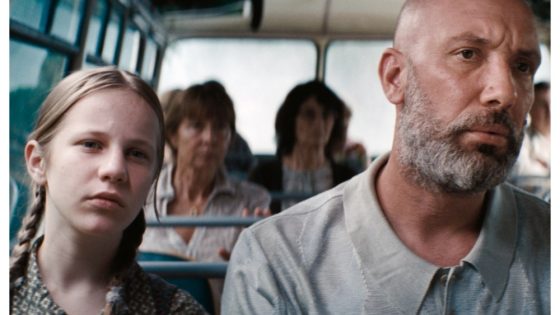Bulgarian drama “Tarika” has its world premiere at the London Film Festival. Variety spoke to its director, Milko Lazarov, whose previous film, “Ága,” premiered in the main competition of the Berlin Film Festival, and debuts its trailer (below).
The film centers on Ali and his daughter Tarika, who live peacefully, but isolated, from their community in rural Bulgaria. Tarika has started developing “butterfly wings,” a bone condition she inherited from her mother and which for a long time has been a source of superstition in the village. Ali rejects invasive procedures and will do anything to protect his daughter when their village’s intolerance turns dangerous.
Vesela Valcheva plays Tarika, Zachary Baharov plays Ali, and Ivan Savov plays the mayor.
The scriptwriters are Lazarov, Ekaterina Churilova and Simeon Ventsislavov. The cinematographer is Kaloyan Bozhilov.
The lead producer is Veselka Kiryakova for Bulgaria’s Red Carpet. The co-producers are Eike Goreczka and Christoph Kukula at Germany’s 42film, and Alexander Dumreicher-Ivanceanu and Bady Minck at Amour Fou in Luxembourg. The sales company is Films Boutique.
Lazarov’s first feature “Alienation” (2013) premiered in Venice Days, and won two awards: special mention from Europa Cinemas Label and best young director from Fedeora.
His second feature “Ága” (2018) premiered in the main competition of the Berlin Film Festival. The film received more than 40 awards, including the Grand Prix for best film at Fajr and the Heart of Sarajevo for best film at Sarajevo.
Here’s the interview. The trailer follows.
What was the inspiration for your film?
I suppose my curiosity to answer questions that are difficult to answer. Perverted justice gives rise to the need to express humanity. Both the collective humanity and the human in each of us. Art is a powerful ally of beauty and justice.
Did magic realist writers like Gabriel García Márquez inspire you at all?
I honor the means of expression of the great masters. Marquez is undoubtedly one of them. Many years ago, I traveled to Colombia to make a documentary about one of his books, “A Hundred Years of Solitude.” A magnificent novel! I must have been impressed by the innuendo of living between the painful visible and longing for the magnificent invisible.
Did folk tales and fairy tales have any influence?
In the context of the conversation, the question is surprisingly relevant. From the very beginning of our work on the film, we had a clear direction that we were trying to create a tale of a magical girl. The story structure is based on that principle. The aesthetic of the film was subordinate to our understanding of the fairy tale world. That was the attitude toward the actors as well.
Can you explain the relevance of the scenes when the border fence is being erected?
The erection of the fence in the film is a metaphor. After the age of economic globalization of the world, the age of mastering people’s spirit has begun. It happens through division and the assertion of the already seized free territories of the spirit. Divide et impera.
How important is the cinematography to the film?
In creating a fictional world, everything is important. I don’t think we’re clearly aware of how many paths converge at the end into one visible path. The cinematography carries the aesthetic of the message. It tells a story on a par with the dramaturgy. This is of course true for films, in which the aesthetic mood is the basis for communicating with their audience.
Does the atmosphere of suspicion and superstition of the villagers have parallels to the political and social atmosphere in Bulgaria now?
Sadly, this is a trend both in my country and around the world. As I said earlier the division and domination of geographical and spiritual territories has reached threatening levels. Basic human rights are being encroached upon under the pretense of prosperity and wealth. The right to express oneself in a peaceful public conversation. The right to make a difference between political arguments for public benefit and the ones that benefit those in power. Both liberal and dictatorial societies are quick to provide primary solutions that become the norm. The entrenchment of these norms gives rise to the false sense of the need for a strong hand. Humanity is one step away from open xenophobia. It has happened before, we should remember and learn from the past.
What qualities did you look for in the actress who played Tarika?
Talent. The only quality that has value in art.
Source Agencies



